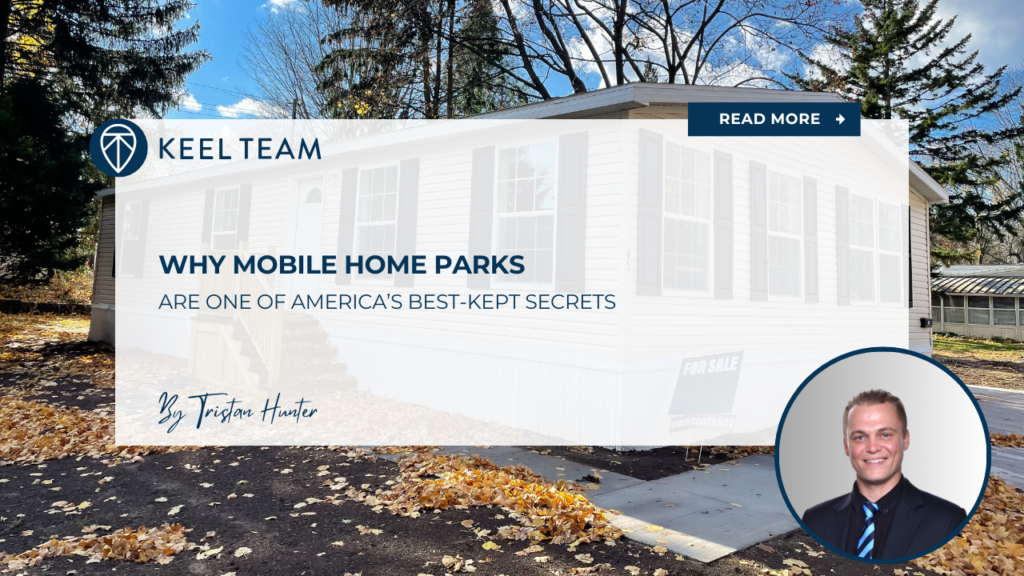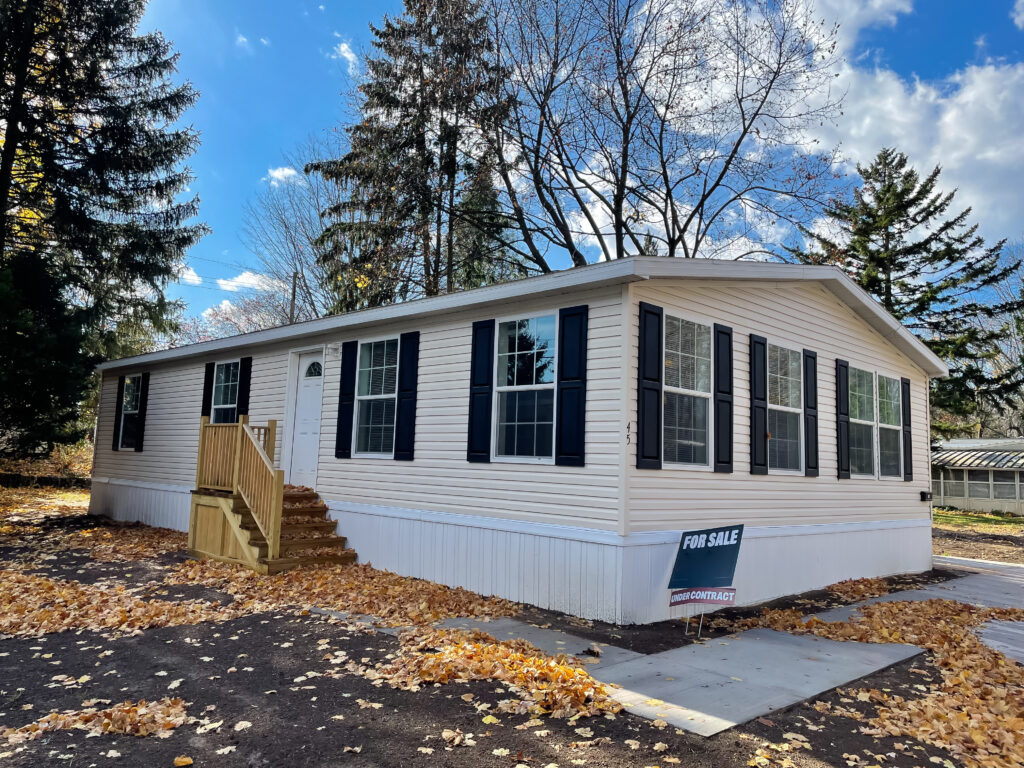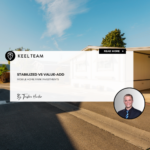Why Mobile Home Parks Are One of America’s Best-Kept Secrets
-
 Tristan Hunter - Investor Relations
Tristan Hunter - Investor Relations

In the world of real estate investing, certain asset classes tend to grab the spotlight. Multifamily apartments, self-storage, and industrial spaces. But quietly and consistently, mobile home parks have been carving out a space as one of the most resilient and potentially rewarding sectors in the market. While not as flashy, mobile home parks typically offer a unique blend of stability, affordability, and long-term value that many investors may be overlooking.
Let’s explore why mobile home parks continue to fly under the radar. We’ll also look at why some consider them a hidden gem in American real estate.
A Real Asset in the Affordable Housing Crisis
Affordable housing remains one of the most pressing issues in the United States. As housing prices rise and apartment rents surge in many markets, manufactured housing can offer a lower-cost alternative. Working families, retirees, and individuals on fixed incomes could benefit from this.
Because the resident typically owns mobile homes while the investor owns the land beneath, the total cost of living in a mobile home park can be significantly lower than renting an apartment or buying a single-family home. This affordability tends to create steady demand for mobile home park lots, especially in growing cities and suburban areas where housing supply remains tight.
Download our FREE eBook on the Top 20 things to know BEFORE investing in mobile home parks!
Limited Supply, Growing Demand
One reason mobile home parks are often described as a “best-kept secret” is the scarcity of supply. Local zoning laws and community pushback have made it increasingly difficult to build new mobile home parks. As a result, the total number of manufactured housing communities in the U.S. has been shrinking or holding flat, even as demand continues to grow.
This supply-demand imbalance may help protect lot rent values and keep occupancy levels high. For investors, this can create an environment where the risk of oversupply is relatively low compared to other asset classes like self-storage or new apartment developments.
Resident Stability Can Be Surprisingly Strong
Mobile home park residents often own their homes and lease the land beneath them. Because of the cost and hassle associated with moving a mobile home, residents tend to stay put longer than traditional apartment renters. This stickiness can lead to high retention rates and fewer turnover-related expenses.
Although results vary from market to market, some operators report that once a mobile home is placed in a park, it may not move again for decades. This creates long-term consistency in cash flow, which is something many investors value—especially during times of economic uncertainty.
Lower Operating Costs Compared to Other Real Estate
Another reason mobile home parks remain appealing is their relatively low operating expenses. Unlike multifamily apartments, where the landlord must maintain the building structures, appliances, and plumbing, mobile home park owners often focus solely on maintaining the land, roads, utilities, and shared infrastructure.
Because residents usually maintain their own homes, the burden of capital expenditures on the structures themselves tends to be lower. This can lead to potentially stronger net operating margins when compared to other asset types.
Additionally, mobile home parks typically require fewer on-site staff. A well-run mobile home park may need just one property manager or maintenance technician, which can reduce payroll costs significantly.
Resistance to Economic Downturns
While no asset is recession-proof, mobile home parks have shown resilience in past downturns. During economic slowdowns, demand for affordable housing may remain steady or even rise as people seek to reduce their housing expenses.
Unlike luxury apartments or high-end commercial buildings, mobile home parks cater to a more budget-conscious tenant base, which may help buffer the impact of market volatility. Some investors view this as a potential hedge against economic instability, although individual results depend on location, management, and other factors.
Institutional Attention Is Increasing—But It’s Still Early
Historically, mobile home parks have been owned and operated by “mom-and-pop” landlords. Many of these properties have not been optimized for operational efficiency or modern management practices. As these owners retire or exit the business, more professional investors are stepping in.
In recent years, institutional capital has started to enter the space. Larger investment groups and REITs are beginning to take mobile home parks more seriously, drawn by the asset class’s strong fundamentals. However, compared to other real estate sectors, institutional presence in mobile home parks remains relatively limited. This leaves room for experienced investors and operators to identify opportunities in underperforming or mismanaged properties.

Opportunities to Create Value Without Displacement
One common misconception about mobile home park investing is that rent increases always lead to resident displacement. However, thoughtful operators often find ways to improve mobile home parks and create value without causing undue hardship to residents.
By upgrading infrastructure, improving management, and providing access to financing for home ownership, investors can often create a win-win situation: the mobile home park becomes more profitable, and residents enjoy a safer, more attractive place to live.
Lot rent in many mobile home parks is still well below market levels, especially in under-managed properties. This may provide room for gradual increases over time, if handled with care and transparency.
Cash Flow, Not Just Appreciation
While single-family homes and commercial buildings often rely heavily on appreciation for investor returns, mobile home parks are generally more cash-flow focused. Because of lower purchase prices (on a per-unit basis) and potentially higher cap rates, mobile home parks may generate solid cash flow right out of the gate.
Of course, appreciation can still occur—especially when improvements are made—but many investors are drawn to the predictable, income-producing nature of mobile home park ownership. When stabilized, these properties can produce income with relatively few surprises.
Final Thoughts
Mobile home parks remain one of the lesser-known corners of the real estate world. But for those willing to do the homework, build relationships with residents, and operate with long-term thinking, this asset class may offer a unique combination of affordability, cash flow, and stability.
There are no guarantees in investing, and mobile home parks have their own risks and responsibilities. Still, many operators believe they represent one of the most overlooked opportunities in real estate today. Perhaps that’s why mobile home parks are still America’s best-kept investment secret.
Are you looking for MORE information? Book a 1-on-1 consultation with Andrew Keel to discuss:
- A mobile home park deal review
- Due diligence questions
- How to raise capital from investors
- Mistakes to avoid, and more!
Disclaimer:
The information provided is for informational purposes only and is not investment advice or a guarantee of any kind. We do not guarantee profitability. Make investment decisions based on your research and consult registered financial and legal professionals. We are not registered financial or legal professionals and do not provide personalized investment recommendations.

Tristan Hunter - Investor Relations
View The Previous or Next Post
Subscribe Below 👇





